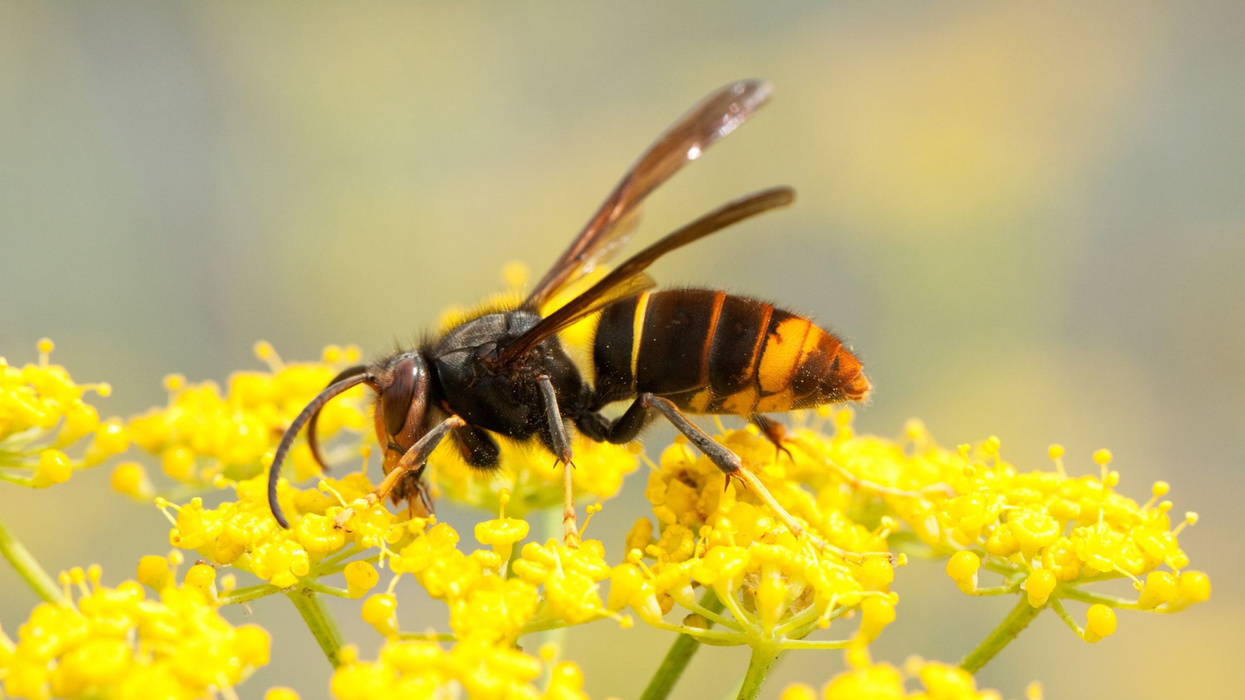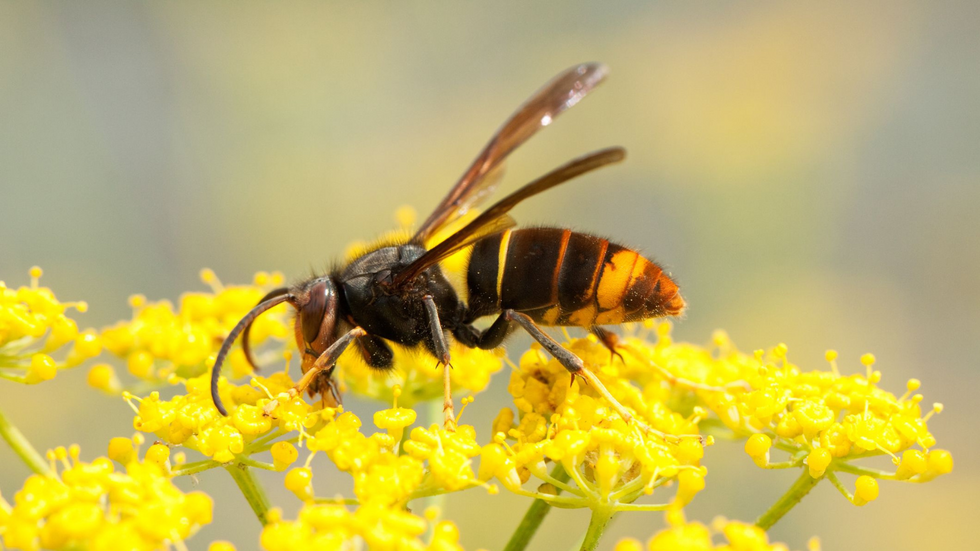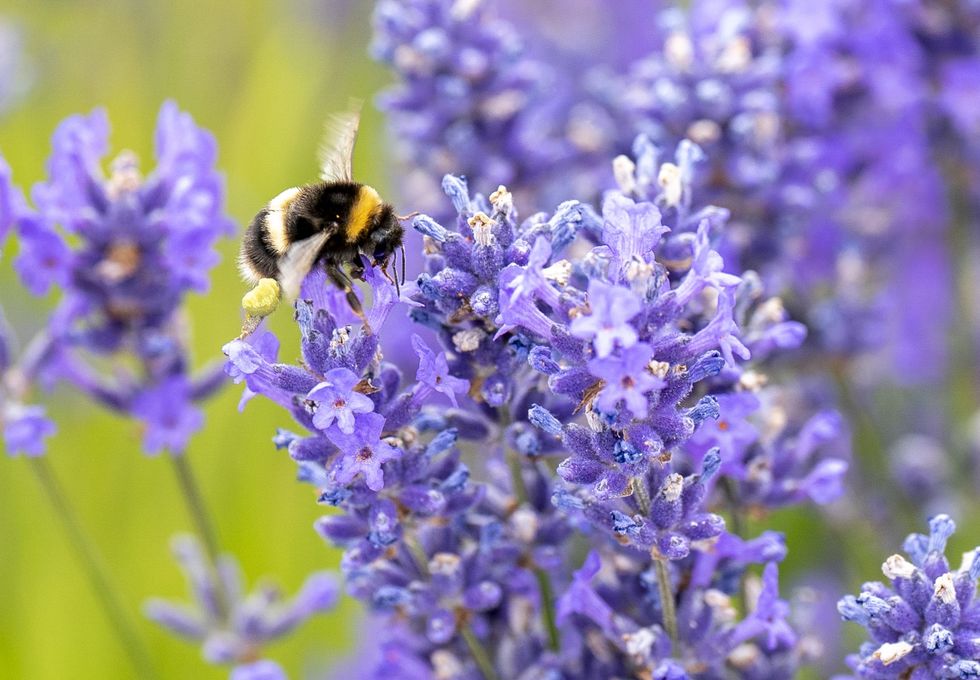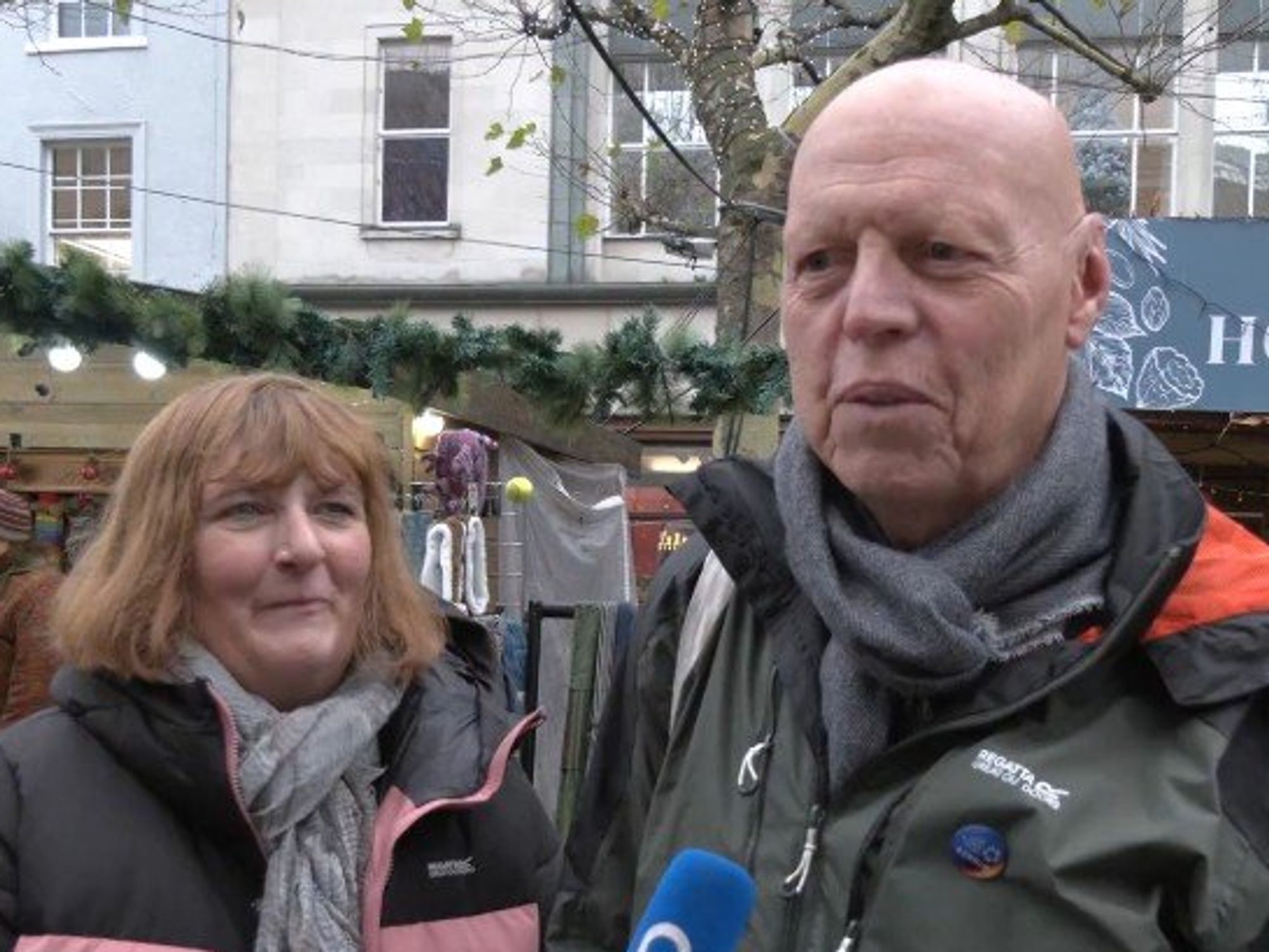'Invasive' species killing off UK's bees survives winter for first time with Britain now at 'tipping point'

A swarm of Asian hornets trapped by researchers in East Sussex last month was found to be the genetic descendants of another nest in the county
|Getty

Genetic testing found a colony had reproduced in East Sussex - and concerningly, more hornets may be able to fly over the English Channel with favourable enough wind conditions
Don't Miss
Most Read
Britain has been left at a "tipping point" after an invasive species of hornet survived a winter on UK shores for the very first time, leaving British bees at risk.
According to new research, the invasive Asian hornet, which survives by preying on other insects, managed to weather the cold and breed in Southern England - and beekeepers have voiced concerns they may be left out of work if their pollinators are eaten.
Asian hornets are thought to have destroyed as many as a third of honeybee colonies in France - and despite the best efforts of the Department for Environment, Food and Rural Affairs (Defra) to curb their attempts to gain a foothold in the UK, experts have warned the species may turn native.
A swarm of Asian hornets trapped by researchers in East Sussex last month was found to be the genetic descendants of another nest in the county which had been destroyed in November 2023 - the first conclusive proof that the stinging insects have successfully bred through Britain's coldest months.
 A swarm of Asian hornets trapped by researchers in East Sussex last month was found to be the genetic descendants of another nest in the county | Getty
A swarm of Asian hornets trapped by researchers in East Sussex last month was found to be the genetic descendants of another nest in the county | GettyIn the wake of the discovery, Ian Campbell from the British Beekeepers Association (BBA) said that the UK could be at a "tipping point" with the hornets, as the species is on the brink of establishing itself.
Beekeepers have raised concerns that the Defra-overseen National Bee Unit, which has been given the job of eradicating the hornets, is overstretched and underfunded.
It's believed the Asian hornets arrived in the country via shipments of goods from Asia - or in vehicles from mainland Europe.
Even more concerningly, the hornets may be able to fly over the English Channel with favourable enough wind conditions.
MORE LIKE THIS:
 A single hornet can eat around 50 honeybees in a day | PA
A single hornet can eat around 50 honeybees in a day | PALast month, GB News reported on a sharp increase in the sightings of Asian hornets in the UK - with 56 of 108 recorded sightings since 2016 taking place in the last year, the majority of which were in Kent.
But according to the latest Defra data, there have been 15 confirmed sightings of Asian hornets in the last three months alone.
The BBA's Campbell said: "They like social insects [like honey bees], because social insects congregate in groups - and that's like an all-you-can-eat buffet for the hornet.
"If they do become established, some [British] beekeepers in the worst-affected areas may give up.
"We know that the levels of losses [of honeybee colonies] in France have averaged out at about 30 per cent, but in the worst-affected areas they can be much higher than that.
"The estimate now is that there are 500,000 Asian hornet nests in France - which is about one per square kilometre - and in the worst-affected areas, nest densities may be ten to 15 per square kilometre."
Whilst Asian hornets pose no higher risk than native hornets to humans, Defra has said that they can attack us "when they perceive a threat to their nest".
And members of the public have been asked to report suspected sightings to Defra using the Asian Hornet Watch mobile app or via this online report form.










